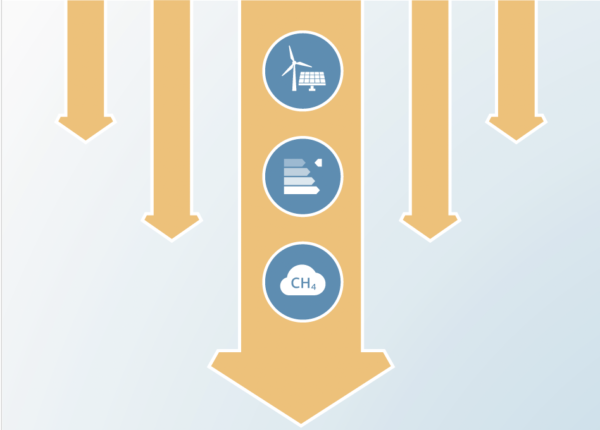Copenhagen Accord Pledges imply higher costs for staying below 2°C warming
Authors
van Vliet, J., van den Berg, M., Schaeffer, M., van Vuuren, D., den Elzen, M., Hof, A., Mendoza Beltran, A., and Meinshausen, M.
Share

This study compares emission pathways aimed at limiting temperature increase to 2°C under varying constraints. In a first set of pathways, the timing of emission reductions is such that over the 2010–2100 period, assuming full participation from 2013 onwards, mitigation costs are minimized. In a second set of pathways, we set emissions in 2020 at a level based on the pledges of the Copenhagen Accord.
In the ‘Copenhagen Potential’ scenario, climate talks result in satisfying conditions linked by countries to their ‘most ambitious’ proposals. Contrasting, in the ‘Copenhagen Current’ scenario, climate talks fall short of satisfying the conditions to move beyond current unilateral pledges. We include scenarios with and without the availability of bio-energy in combination with carbon capture and storage.
We find that for a ‘Copenhagen Potential’ scenario, emissions by 2020 are higher (47 GtCO2eq/yr) than for a least-cost pathway for 2°C (43 GtCO2eq/yr with a 40–46 GtCO2eq/yr literature range). In the ‘Copenhagen Potential’ scenario the 2°C target can still be met with a likely chance, although discounted mitigation costs over 2010–2100 could be 10 to 15 % higher, and up to 60 % in the 2040–2050s, than for least-cost pathways. For the ‘Current Copenhagen’ scenario, maintaining an equally low probability of exceeding 2°C becomes infeasible in our model, implying higher costs due to higher climate risks. We conclude that there is some flexibility in terms of 2020 emissions compared to the optimal pathways but this is limited.
The 2020 emission level represents a trade-off between short-term emission reductions and long-term dependence on rapid reductions through specific technologies (like negative emission reductions). Higher 2020 emissions lead to higher overall costs and reduced long-term flexibility, both leading to a higher risk of failing to hold warming below 2°C.











